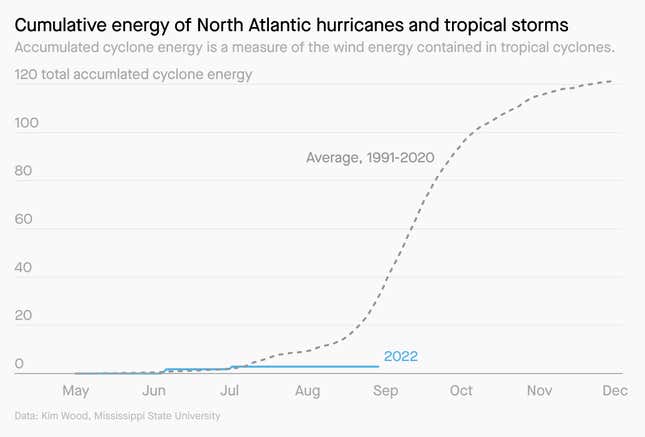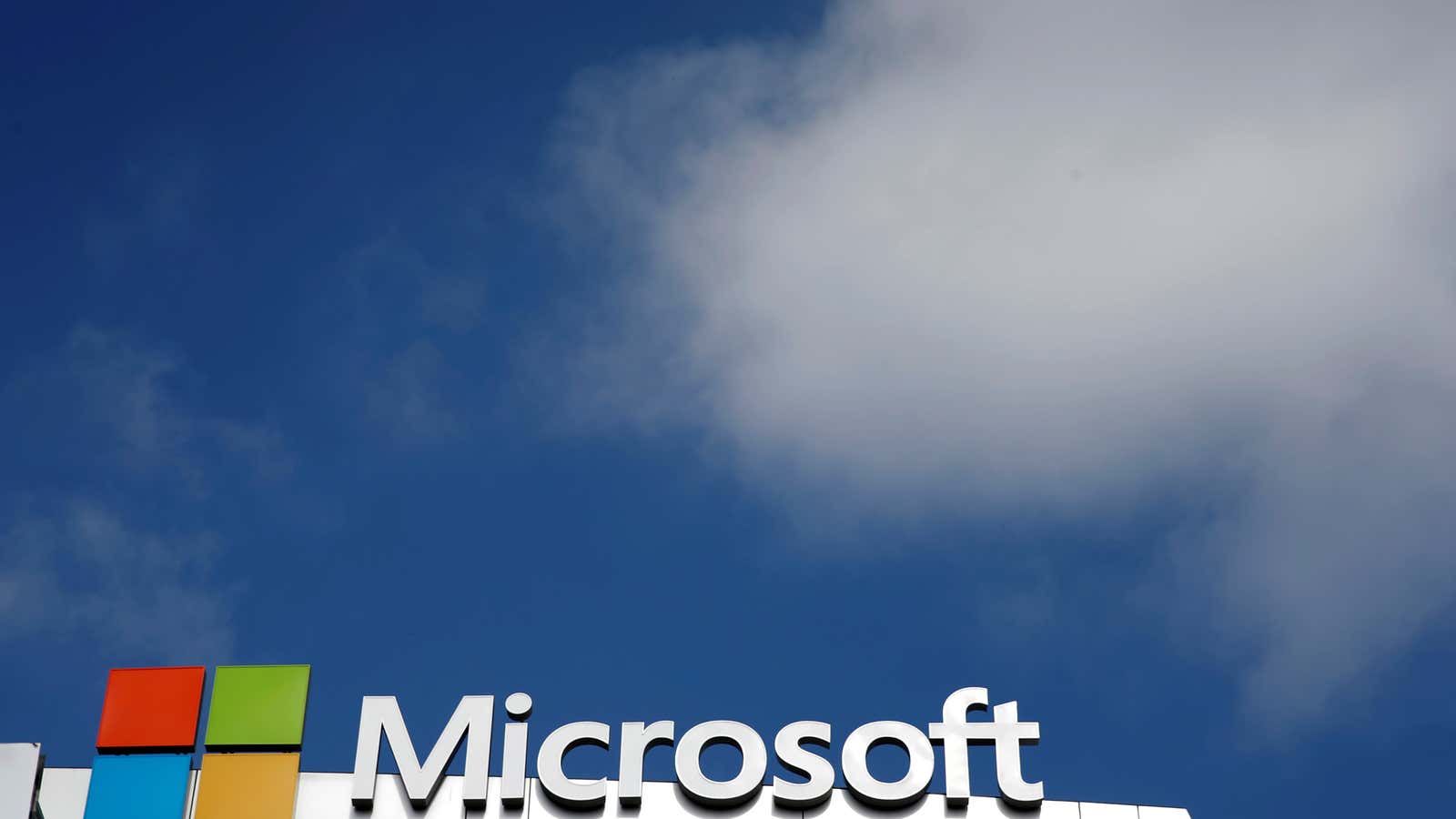Good morning, Quartz readers!
Here’s what you need to know
Amazon and Alphabet raged against Microsoft’s cloud licensing plans. The changes, meant to appease EU antitrust regulators, did not go down well with the tech giant’s competitors.
Mikhail Gorbachev died at 91. The Russian leader who broke up the Soviet Union was more popular abroad than at home. To support his philanthropic efforts, he starred in two ad campaigns—one for Apple, and one for Pizza Hut.
US job openings are still rising. There are now 1.9 job openings for every unemployed person, up from 1.8 in June—and many of those are in the service industry.
A new law in California would force social media firms to think of the children. The bill would force companies to assess and mitigate risks to minors before releasing new products or features.
Netflix hired two Snap executives to run its ad-supported tier. The chief business officer and VP for ad sales are leaving the social media company just as it announced plans to cut 20% of its workforce.
Manufacturer First Solar plans to build a $1.2 billion solar panel factory in the US. The company’s executives credited the Inflation Reduction Act as the catalyst for the decision.
India’s Gautam Adani was named the world’s third-richest person. Valued at $137.4 billion, he now ranks below Elon Musk and Jeff Bezos.
What to watch for
In May, US government meteorologists had predicted a busy season for hurricanes in the Atlantic Ocean, citing above-average sea surface temperatures and monsoon conditions in west Africa. But then…crickets. Since June, there has been just one relatively weak hurricane (Bonnie) and two tropical storms large enough to merit a name (Alex and Colin). That’s the least active start to the season in at least 30 years.

One reason: Saharan dust hanging out over the Atlantic. Another: a “tropical upper-tropospheric trough,” which has been as difficult to say as it has been to move from its spot over the Caribbean. But if you live in the Atlantic hurricane zone—or even if you’re just a consumer of energy—keep an eye on the sky. Hurricanes, like the typhoons that have put much of Pakistan underwater, still have plenty of time to wreak havoc this season.
The Twitter whistleblower threw Elon a bone
Peiter Zatko, a.k.a. “Mudge,” and a certain impulsive billionaire, a.k.a. “Musk,” have something in common—both have a bone to pick with Twitter. In an attempt to wriggle out of his $44 billion deal to buy Twitter, Elon Musk and his lawyers made broad claims that Twitter was lying about how much spam was on the platform. It was never a very sharp approach, but Zatko has given Musk’s legal team a different kind of edge.
1️⃣ In a whistleblower complaint, Zatko said half of Twitter employees had access to system-wide controls.
2️⃣ Zatko also said Twitter misused data in violation of a decree issued by US regulators.
3️⃣ Musk’s lawyers sent a whole new letter of termination to Twitter saying these revelations are grounds to terminate their agreement.
4️⃣ Twitter’s lawyers say the letter is both “invalid” and “wrongful,” but the reality is that Musk was on weak ground with his bot claims, and security concerns is a stronger argument, though probably still not as strong as he needs it to be.
A numeric breakdown of NFT naiveté
If you’re a Daily Brief reader, you’re most likely familiar—nay, overly familiar—with the concept of an NFT (and if you still don’t fully grasp how it works, you’re not alone). But a new survey found that half of Americans were unfamiliar with the term. Here’s what else we learned:
79%: Share of American men, aged 18-29, who have heard of NFTs
58%: Share of American women in the same age group who are in the know
46%: Share of American adults who have bought crypto and aren’t wowed by the return
Scott Nover explores the survey’s results. ✦ Member support helps keep Quartz stories like these free and accessible to all. Sign up today and take 40% off when you do!
Quartz’s most popular
📈 US job openings are rising despite recession talk
🤖 The next step for DALL-E and Midjourney is animation
🙅♂️ Why recession-worried shoppers aren’t shopping at TJ Maxx, Ross, or Nordstrom Rack
🦠 It took two years for the WHO to admit covid is airborne. The reason is rooted in science history
🌝 Why is it so hard to fuel NASA’s new moon rocket?
✈️ Business travel will never make a comeback
Surprising discoveries
The last member of an uncontacted Amazonian tribe has died. The man had refused contact with the outside world—with good reason.
Dolphins’ big brains help them find friends. The mammals develop lasting social networks to fend off rivals and find mates.
A man set sail on the Mississippi River inside a giant pumpkin. Duane Hansen paddled for 38 miles, hoping to set a Guinness World Record.
A huge tomato spillage wreaked havoc on a California highway. Nothing awesome about this sauce.
An alligator is in the running to become America’s Favorite Pet. The reptile, a certified emotional support animal, could take a bite out of the competition.
Our best wishes for a productive day. Send any news, comments, sea buddies, and gourd boats to hi@qz.com. Reader support makes Quartz available to all—become a member. Today’s Daily Brief was brought to you by Tim McDonnell, Scott Nover, Sofia Lotto Persio, Samanth Subramanian, Julia Malleck, and Susan Howson.




